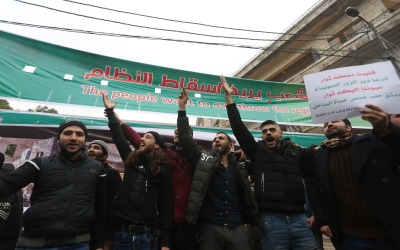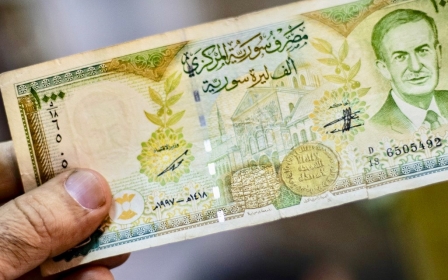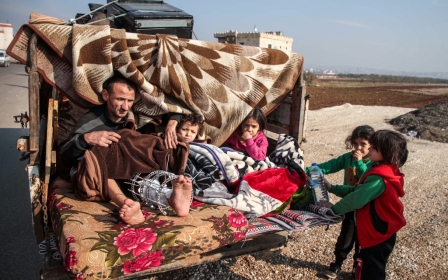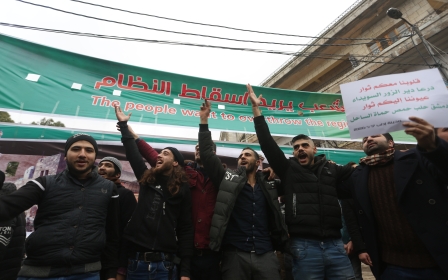Family of eight among 40 killed in Russian-led strikes on Syria's northwest
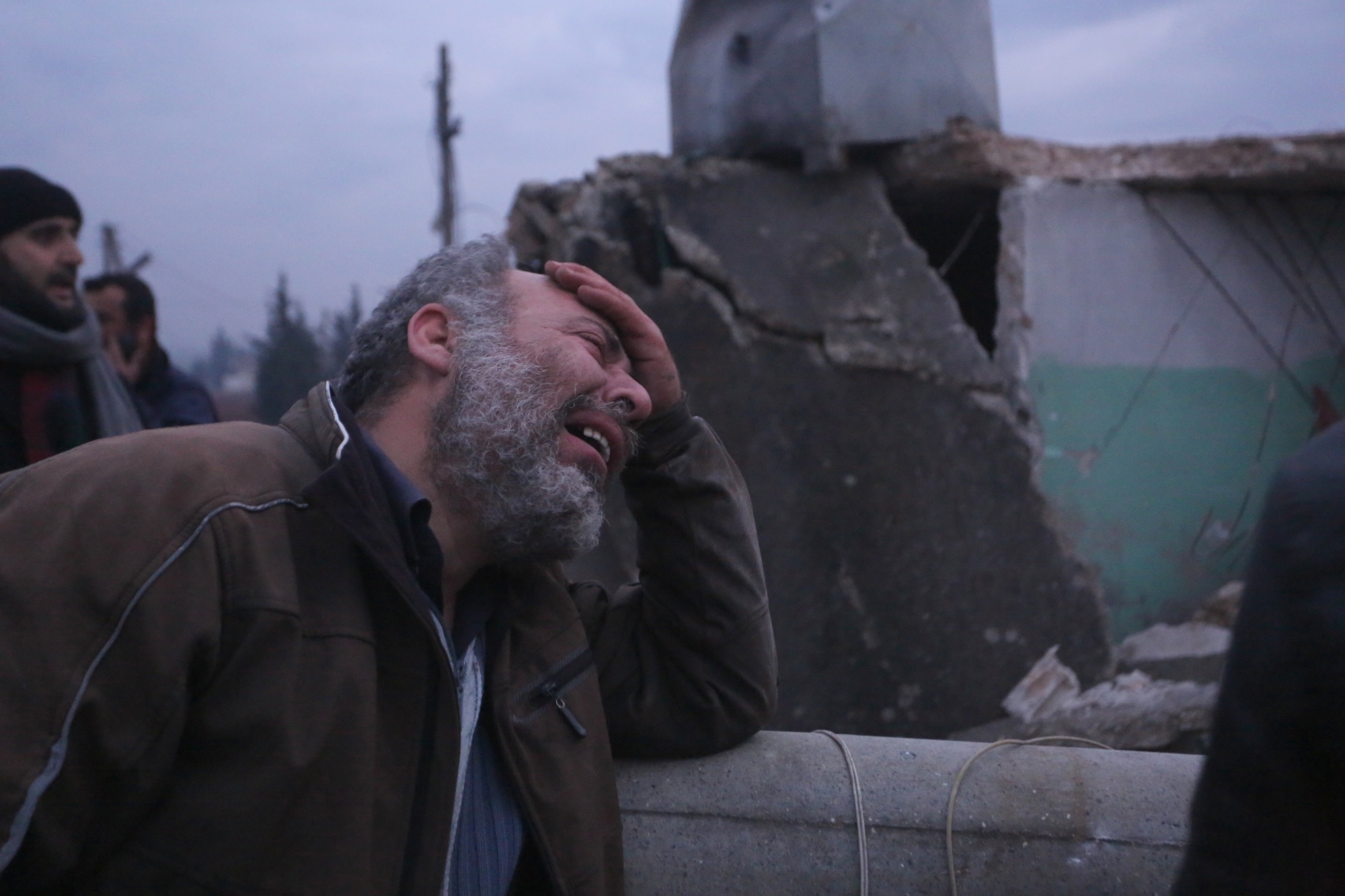
At least 40 people were killed in Russian-led air strikes on Tuesday in Aleppo and Idlib in northwest Syria, residents and rescuers said, in a major army assault backed by Iranian militias to clear out rebels in the area.
Among the fatalities were a family of eight, including six children, killed in the rural village of Kfar Taal west of government-controlled Aleppo, as well as nine civilians killed in Maardabseh in the southeast of Idlib province, witnesses told Reuters.
"God take revenge on all tyrants. There is no one else left in my family, they are all gone," Abu Yasser, 71, a relative of the family wiped out in Kfar Taal, said in a voice recording sent to the news agency.
At least 22 other civilians were killed in other strikes by Russian and Syrian government warplanes on rural opposition areas that have been hit hard since the Russian-led military campaign, supplemented by Iranian militias, began in December.
Meanwhile, Syrian state television said on Tuesday that two women and a child were killed in a rocket attack by "terrorists" - its standard term for anti-Assad rebels - on a crowded neighbourhood of Aleppo city.
According to the Syrian Observatory for Human Rights, military escalation in Idlib and Aleppo over the past week has caused more than 250 civilian deaths or injuries, and killed more than 200 Syrian and Russian troops as well as rebels.
The UK-based group said that between 15 and 22 January, its activists had documented nearly 4,000 air and ground strikes targeting the countryside of both Idlib and Aleppo.
Russian forces bombarded towns including Kafr Nouran and Kafr Naha, leading to multiple civilian deaths, the group said.
The aerial bombings, in which Moscow has also deployed special forces on the ground to push deeper into rebel-held territory, has left dozens of towns in ruins and knocked down hospitals and schools, rescuers and aid agencies say.
Moscow and Damascus deny accusations of indiscriminate bombing of civilians, saying they are fighting the militant group Hayat Tahrir al-Sham, which controls most of Idlib and who they say have stepped up their attacks on civilians in Aleppo city.
Deteriorating situation
Last week, the United Nations warned that the humanitarian crisis in the Idlib region had worsened following the renewed Russian-backed offensive, with at least 350,000 civilians - mostly women and children - now on the run and seeking shelter in border areas near Turkey.
Another half a million people fled earlier bouts of fighting to the safety of camps near the border of Turkey, which backs some rebel factions in the northwest.
A ceasefire brokered between Turkey and Russia to end the latest offensive collapsed last week when Moscow resumed heavy strikes on civilian areas in what residents said was a strategy of bringing the armed opposition to its knees by striking its popular base.
Russia intervened in Syria's long-running war four years ago in support of Syrian President Bashar al-Assad, while neighbouring Turkey and some Gulf states supported rebel groups that rose up against him.
Assad, who has been in power for 19 years, has repeatedly vowed to reclaim the rebel-held territory.
The latest offensive has brought Assad's military campaign closer to heavily populated central areas of Idlib, where nearly three million people are trapped, according to aid charities and UN agencies.
The conflict in Syria, now approaching its ninth year, has devastated much of the country. About half a million people have been killed and millions more have been forced to live as refugees.
Middle East Eye propose une couverture et une analyse indépendantes et incomparables du Moyen-Orient, de l’Afrique du Nord et d’autres régions du monde. Pour en savoir plus sur la reprise de ce contenu et les frais qui s’appliquent, veuillez remplir ce formulaire [en anglais]. Pour en savoir plus sur MEE, cliquez ici [en anglais].


